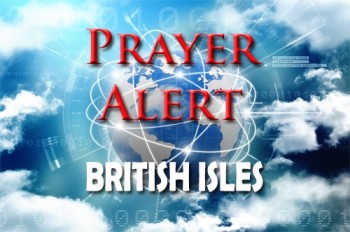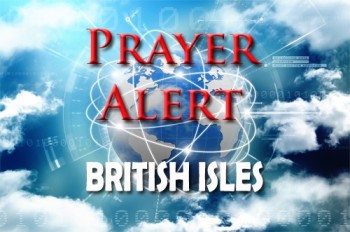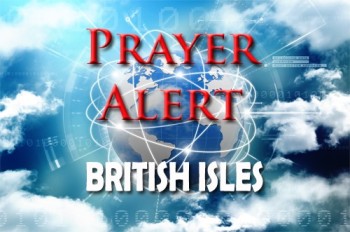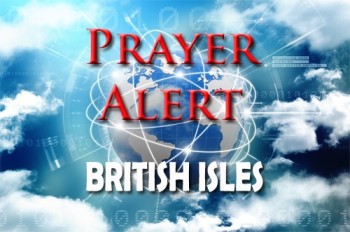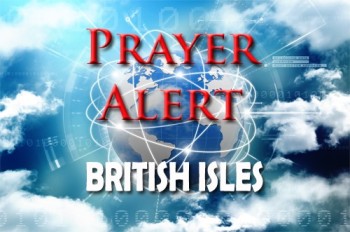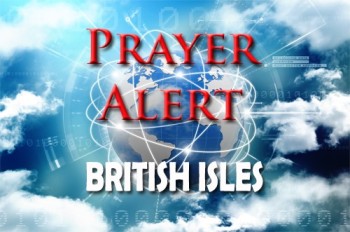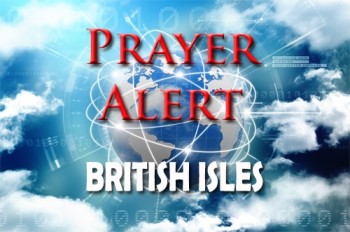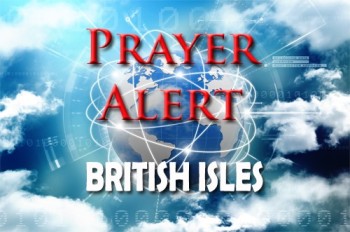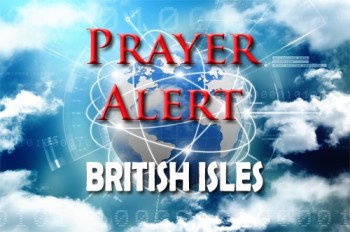Displaying items by tag: Keir Starmer
Migrant boat crossings: France and UK aiming to curb the flow
Emmanuel Macron and Keir Starmer are engaged in critical talks aimed at curbing illegal Channel crossings in small boats. During Macron’s historic state visit to the UK, the first by a French president since 2008, the two leaders are negotiating enhanced border enforcement, including a ‘one in, one out’ migrant returns deal. The plan would allow the UK to return asylum seekers to France in exchange for accepting migrants with family ties in Britain. Macron stressed the importance of EU-level cooperation and reaffirmed the shared responsibility to combat irregular migration with humanity and fairness. Talks also include expanding French police powers to stop boats in shallow waters - a shift already showing signs of implementation. Despite optimism, challenges remain, including opposition from some EU countries. Small boat arrivals in the UK reached a record high in the first half of 2025, which underscores the urgency of finding ways of curbing the flow. Both nations hope for tangible progress in their joint response to people-smuggling networks.
Borrowing costs jump and pound falls on Chancellor's tears
Financial markets reacted sharply this week after Rachel Reeves appeared tearful during Prime Minister’s Questions, after the Government’s sudden U-turn on welfare reforms. Sterling fell by 1% against the dollar, while UK borrowing costs surged in one of the largest single-day moves since the market turmoil following Liz Truss’s 2022 mini-budget. The welfare reversal has left an almost £5 billion gap in Reeves’s fiscal plans, prompting investor concerns about how the Government will balance the books. While Downing Street insisted Reeves retains Starmer’s full support, analysts say the episode highlights market anxiety over potential leadership instability and future fiscal policy. Speculation mounted about possible tax rises in the autumn, though ministers reiterated pledges not to increase income tax, VAT, or National Insurance. Despite the turbulence, experts noted that markets are not as fragile as during the 2022 crisis.
Starmer’s NHS plan promises more GPs and local health hubs
Keir Starmer has unveiled an ambitious ten-year plan to transform the NHS by shifting healthcare from hospitals to local communities. Central to the proposal are 200 new 'neighbourhood health centres', offering scans, outpatient services, mental health support, and more - all aimed at reducing hospital demand. Starmer declared the NHS must 'reform or die’, pledging accessible, community-based care under one roof. Health secretary Wes Streeting promised thousands more GPs, reversing current trends favouring hospital consultants, and aims to slash waiting lists while prioritising British doctors for NHS jobs. The plan also includes an enhanced NHS app, AI safety alerts, and a focus on helping patients return to work. However, experts express caution, noting that past governments have announced similar visions without delivering meaningful change. Questions remain over funding, but Starmer insists the plan will 'fundamentally rewire' healthcare and prioritise patient-centred care, especially in deprived areas.
More pensioners to get winter fuel payments this year
Rachel Reeves has announced that more pensioners will qualify for winter fuel payments this year, following the backlash over Labour’s 2024 decision to cut the benefit for most retirees. While she confirmed the means-test threshold will rise, she did not specify by how much, and at Prime Minister’s Questions, Keir Starmer also failed to clarify how many of the ten million affected pensioners will regain eligibility. Labour’s original decision to means-test the payment reduced eligibility from 11.4 million to just 1.5 million, limiting it to pensioners receiving benefits like Pension Credit. The move, intended to save £1.5 billion annually, was part of an effort to address what Labour calls a £22 billion fiscal gap left by the previous government. Critics, including Kemi Badenoch, accused Labour of lacking preparation and transparency. Reeves insisted the government remains committed to easing winter costs for vulnerable seniors but acknowledged that specifics are still being finalised.
UK-US deal or eased tariffs ‘won’t be enough’, Starmer warns
Keir Starmer has cautioned that even if the UK secures a US trade deal or lower tariffs, it will not be enough to safeguard Britain’s economic future. In response to Donald Trump’s imposition of a 10% import tax on British goods, Starmer urged the UK to adapt to a changing global landscape by strengthening cooperation with Europe and diversifying trade partnerships. Trump later announced a 90-day pause on tariffs for most countries, though uncertainty remains. Global markets reacted with volatility, and the Bank of England warned of rising global financial risks. Despite the turmoil, Starmer reaffirmed the government's fiscal discipline. Rachel Reeves is also working to establish trade agreements, including a recent £400 million deal with India, and has planned high-level meetings in Washington and Brussels. The Government aims to boost UK growth by fostering new trade alliances while safeguarding vital interests like the NHS and digital taxation.
24,000 people who have 'no right to be here' have been returned under Labour
At the Government’s border security summit in London, Keir Starmer reported that 24,000 individuals without legal right to remain in the UK have been returned since Labour took power - the highest return rate in eight years. The summit gathered representatives from over 40 countries to address illegal migration and people smuggling, including tech platforms accused of enabling trafficking via social media. Home secretary Yvette Cooper highlighted the cruel tactics of smuggler gangs, including hugely overcrowded boats, exploiting vulnerable people, and using drones to evade detection. Ministers acknowledged disappointment in the rising small boat crossings and pledged £33 million in new funding to target organised criminal networks globally. Starmer emphasised the need for international collaboration, calling people smuggling a 'global security threat’.
Starmer hints he will hit back at Trump as tariff war intensifies
Keir Starmer has declared that 'all options are on the table' as Britain weighs its response to Donald Trump’s global tariffs on steel and aluminium. The EU has already imposed countermeasures, but the UK has taken a cautious approach, seeking an economic agreement rather than immediate retaliation. Trump administration insiders warn that a quick trade deal with the UK may hinge on abandoning online safety legislation - a demand Starmer is unlikely to meet. Additionally, US vice president JD Vance has prioritised free speech concerns in trade talks, challenging the UK’s regulations on tech companies. With the UK now outside both the EU and US trading blocs, businesses fear further economic strain. Steel industry leaders have urged the Government to take strong action, while some politicians argue that failing to respond will weaken the UK’s position. As tensions mount, prayers are needed for wisdom in leadership, economic stability, and fair trade agreements.
Starner outlines plans to scrap NHS England
Keir Starmer has announced plans to abolish NHS England, aiming to cut bureaucracy and redirect funds to frontline healthcare. Calling it an ‘arms-length body’, he argued that scrapping it would eliminate duplication, saving money for nurses and patient care. Health secretary Wes Streeting acknowledged that up to 10,000 jobs could be cut, but said reform was necessary to reduce inefficiency. NHS England, established in 2013, oversees daily NHS operations with a £168 million budget. Last month, its chief executive Amanda Pritchard stepped down, reflecting mounting pressures. Starmer’s broader government efficiency plan includes AI-driven reforms to streamline state functions, aiming to save £45 billion, and to cut compliance costs for businesses by 25%. He criticised the state as overstretched and ineffective, promising to reduce regulatory burdens. Streeting called the move the ‘final nail in the coffin’ of the ‘disastrous’ 2012 NHS reorganisation, pledging to empower healthcare workers and shorten waiting times.
Taoiseach praises UK-Irish 'reset' ahead of joint summit
Irish Taoiseach Micheál Martin met Keir Starmer in Liverpool ahead of a historic UK-Irish summit. The event brings together cabinet members from both governments to strengthen ties in trade, energy, and security. Discussions will focus on economic growth, investment, and cooperation in renewable energy, technology, AI, and security. A new data-sharing agreement will be announced to boost offshore energy production. Additionally, Ireland will unveil £185.5 million in investments in the UK, expected to create over 2,500 jobs. The summit is taking place amid heightened security concerns in Europe. Martin praised Starmer’s leadership, emphasising the importance of peace and international cooperation. Starmer expressed his commitment to deepening UK-Irish relations, stating that previous ties had not reached their full potential. This meeting marks a new era of collaboration, reinforcing economic and diplomatic ties between the two nations. The summit concludes before Martin attends a European Council meeting in Brussels.
Starmer in Washington for talks with Trump, focus on Ukraine
Keir Starmer has held his first meeting with Donald Trump. Despite tensions between the White House and Europe, Starmer affirmed his trust in Trump and emphasised the 'special relationship' between the UK and the USA. However, Trump appeared reluctant to commit to a US military backstop for Ukraine, stating that Europe should take the lead. Starmer underscored the importance of a lasting peace with a security guarantee to deter further Russian aggression. While the UK and France are prepared to deploy peacekeeping troops, securing US support remains crucial. In preparation for the talks, the UK pledged to increase defence spending, a key NATO requirement, while maintaining strong ties with both the US and European allies. Starmer reassured the British public that national security remains a top priority, while also highlighting opportunities for job creation in the defence sector. For an assessment of Starmer’s visit, which included an invitation from King Charles for an unprecedented second state visit, see

